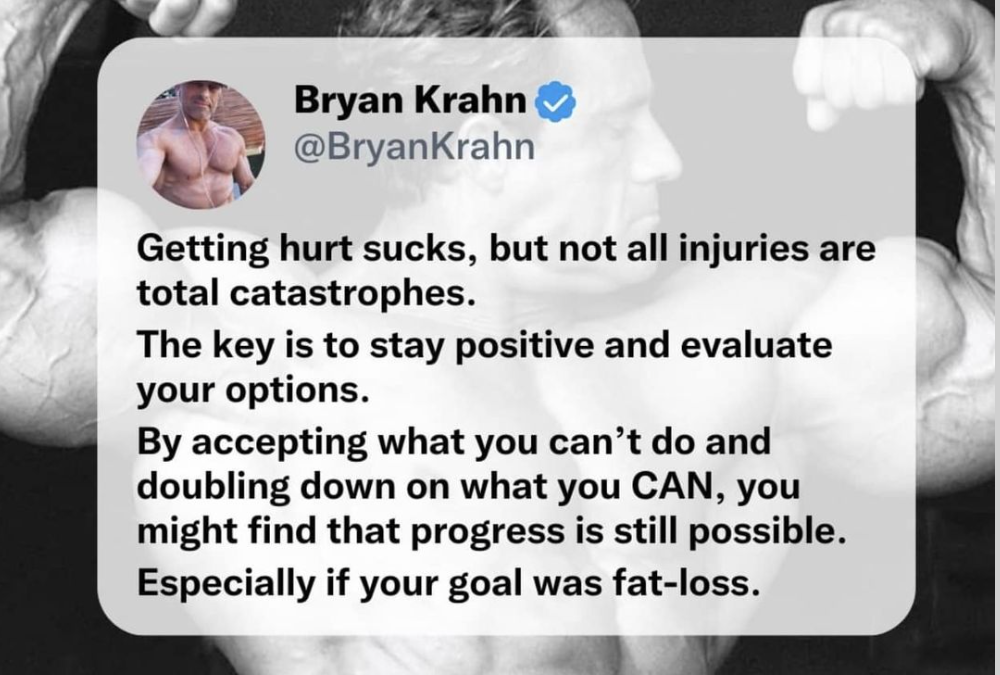Getting hurt sucks.
Perhaps something goes pop in your back mid-rep.
Maybe it is a niggling pain in your shoulder that gets progressively worse. (You didn’t train through it, right?)
Or even a non-workout-related injury that still forces you to hit pause.
All of the above suck royally in their own way, and how much they suck depends on many things outside your control.
But what you DO control is your mindset and thinking that injury means abandoning your goals.
“I was trying to lose 15 pounds by July 4th. But now my shoulder is screwed and I can’t train upper body, it’s game over!”
Maybe not.
It depends on what actions your goal requires.
For example, if you can’t do any upper body pressing and your goal is to win a powerlifting competition in two months, then yes, you’re toast.
But if you’re only trying to get in better shape—such as losing 15 pounds by July 4th—limitations on upper-body work will not hold you back all that much.
A general fat-loss goal requires more than just lifting.
It takes diet management, cardio/movement/steps, and weight training to hang onto muscle—maybe even build a little—and, of course, rest.
The ability to press overhead, or even press at all, would help but is NOT essential for fat loss or even short-term muscle retention.
Just replace it with more work you CAN do—and ideally, stuff that can speed up recovery.
So using our hypothetical situation, you can’t do upper-body pressing, but you can:
– train lower body, arms, and core
– do extra horizontal pulling (rowing)
– get treatment & do your damn rehab
– do cardio & be more active in general
– double down on diet
– prioritize sleep & actively manage stress
Obviously, this is hardly a be-all, end-all guide to injury management.
At BEST, it says not all injuries are total catastrophes and that you have options.
And folding your tent and going home is seldom the only one.
– Coach Bryan

